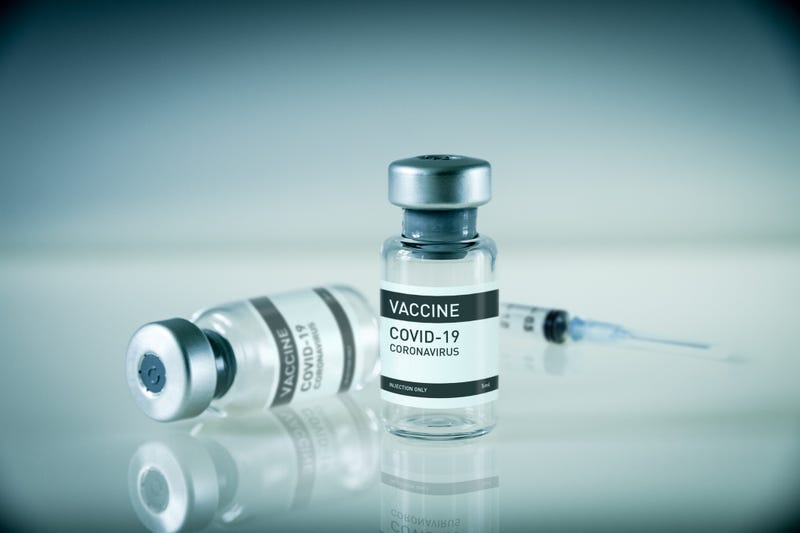
Jurisdictions around the country and the world are starting to have begun setting rules about what people can and can't do if they’re unvaccinated.
For instance, the New York Metropolitan Transportation Authority has decided not to pay death benefits anymore to families of people who were unvaccinated. In Singapore, officials announced Monday that they will no longer pay for COVID-19 treatment for those who haven't gotten their shot.

While some of these measures may seem harsh, they are not surprising, according to Dr. John Swartzberg, Clinical Professor Emeritus of infectious diseases and vaccinology at the UC Berkeley School of Public Health, on Tuesday’s Ask an Expert.
"It makes me sad that it’s all coming to this," he told KBCS Radio’s Holly Quan and Dan Mitchinson. "That we’re having to find punitive ways to get people vaccinated."
But this turn of events is expected, he said. As people contract COVID-19 who aren’t vaccinated and wind up in the hospital or even dying, they’re likely infecting other people. "This has tremendous societal costs and direct costs to the hospitals and direct costs to the insurance companies."
These companies, organizations and governments are putting their foot down because "it’s costing everybody a lot of money for people making a choice not to get vaccinated," said Swartzberg.
It’s a major financial burden. Not only that, but perhaps even more importantly, those choosing not to get vaccinated are helping perpetuate the pandemic and keep it going.
Insurance companies may even go so far as to charge unvaccinated people higher premiums. The discussion began months ago, but was given further ammunition after the delta variant hit the scene this past summer, said Swartzberg.
It’s similar to smoking, he said. If someone chooses to smoke cigarettes, a lot of insurance companies charge premiums for that. "Smoking primarily harms the person who is smoking, but we know second-hand smoke harms other people," said Swartzberg.
Being unvaccinated definitely harms the individual, but it also, even more so than second-hand smoke, harms the people around them.
This type of policy is nothing new. Other diseases, like smallpox and the flu epidemic, caused widespread mandates as well.
Healthcare workers and people in schools are still required to get vaccinated for the flu today.
What’s new this time, is the decision to hold people financially responsible. It’s not a medical decision, it’s a societal decision, said Swartzberg. "We as a society need to say, 'Are we willing to continue to put the expense for people who are electing to cost society a lot more money, or are we not?'"
It’s not a route being taken lightly. "Sometimes out of necessity, we have to do desperate things," he said.

